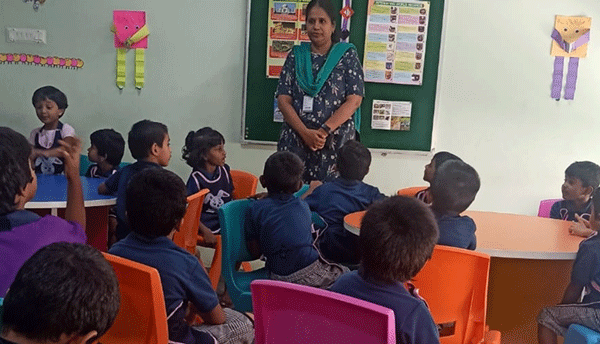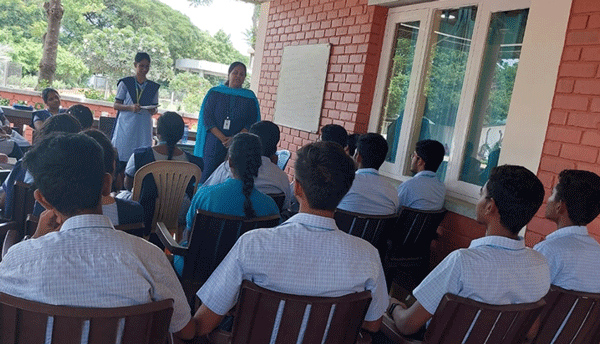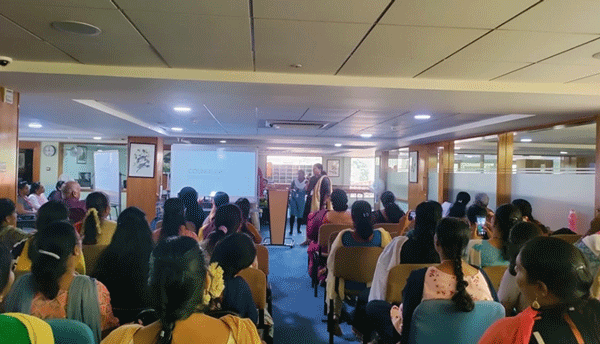Feel like you don’t fit in? Concerned about friendship? Worried about issues at home? Overwhelmed by academics? Sometimes it is just not possible to sort problems alone?Problems may crop and lead to lack of sleep, concentration, lack of appetite and certain other issues. When you need to talk to someone, a school Counsellor can be great place to start.
It is good to visit your Counsellor and get to know him/her even if you don’t have a problem. This will help you build the comfort level with the Counsellor in case you ever need to meet in times of crisis.
Who all does the Counsellor work with?
A Counsellor provides counselling, consultation, coordination and advocacy services to all students, parents and the school community. A school Counsellor works in preventive, curative and developmental mode. If there is a need, the Counsellor meets and extends the support of parents and school community for overall growth of the child.
How often does a student meet the Counsellor?
Some concerns are dealt with in a one-time meeting. Others require regular meetings for a while. It all depends on the topic at hand and the plan that you and your Counsellor decide on.
The Counsellor also addresses the students/teachers and other staff member through soft skills training and this helps in facilitating some important people skill that will help an individual in holistic development.
These skills are imparted to students through Life Skills Activities and Value Based Spiritual Education department. Some skills are facilitated by the Counsellor based on the need of the hour and this helps the Counsellor to build connection with students, thus making them comfortable to approach the Counsellor as individual or as a group.
Some of skills addressed to the students/teachers and other staff members are:
-
Self awareness and empathy
-
Self esteem
-
Interpersonal relationship
-
Effective communication
-
Assertiveness
-
Coping with stress
-
Managing emotions
-
Decision making
-
Problem solving
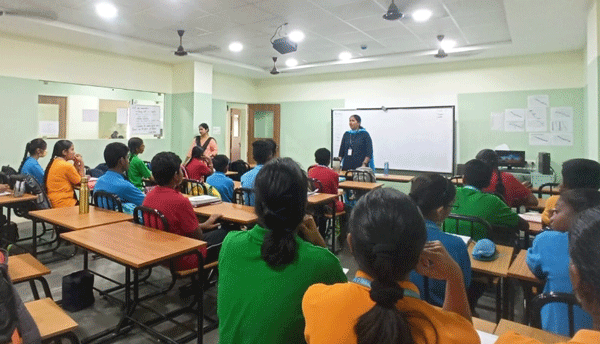
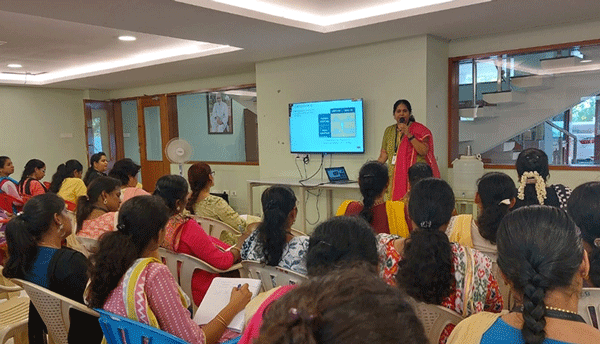
Students have varied needs and some of the prominent needs are:
Personal area (Emotional, Social, Mental)
-
Help students to identify, acknowledge and nurture their qualities.
-
Guide an individual to acknowledge their strengths and weakness.
-
To empower them in managing issues such as identity crisis, bullying, feeling lonely, lack of parental involvement, social pressure, learning difficulty, handling failures, peer adjustments and many more.
-
Foster interpersonal communication skills.
Academic area
-
Help students realize their potential strengths.
-
To prioritize and plan the study.
-
Remove blocks related to academic success.
-
To manage exam fear if any.
Counselling for Parents
-
Importance of investing quality time with the child.
-
Importance of listening and communicating with the child and observing their behaviour, feelings and thoughts.
-
Accepting the child with his/her strengths and weakness.
-
Awareness on nurturing and controlling parenting style.
-
Ill effects of undue pressure on the child.
-
Psychosocial problems of child if any and coping strategies.
-
Removing the stigma attached to counselling.
Counselling for teachers and school staff
-
Understanding that each child is unique and accepting every student as he/she is.
-
Importance of building connection with the students.
-
Identifying factors that indicates child is concerned about something.
-
Identifying learning disabilities of the students.
-
Ways to bring the best out of each student.
-
Overall development of the students.
-
Addressing academic or classroom related concerns that students are facing and collectively developing ways to help the affected party.
The Counsellor works individually with the students, as well as in the capacity of a team member in a team comprising of the teachers, the school staff and the parents.
